Ottawa denounced Beijing for forcing the removal of four pro-democracy lawmakers from Hong Kong’s legislature, saying China’s decision is a “further assault on Hong Kong’s high degree of freedoms under the Sino-British Joint Declaration.”
“This action clearly demonstrates a concerning disregard for Hong Kong’s Basic Law and the high degree of autonomy promised for Hong Kong under the ‘one country, two systems’ framework,” said foreign affairs minister François-Philippe Champagne in a statement on Nov. 11, while also noting that Beijing’s move “further narrows Hong Kong’s autonomy and the space for freedom of expression and public participation in governance in Hong Kong.”
“We are deeply disappointed that China has chosen to break its international obligations. Canada will continue to stand with the people of Hong Kong,” he continued.
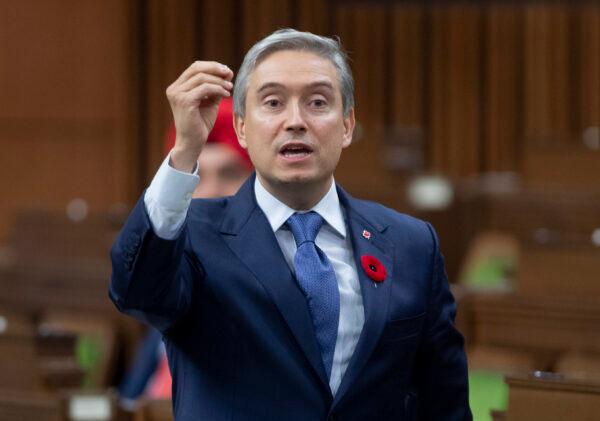
But in 2017, Beijing broke the promise, saying the declaration “no longer has any practical significance, and it is not at all binding for the central government’s management over Hong Kong.”
On Nov. 11, China’s rubber-stamp legislature passed a resolution stating that Hong Kong lawmakers who support the city’s independence or refuse to acknowledge China’s sovereignty over Hong Kong, as well as commit acts that threaten national security or ask external forces to interfere with Hong Kong’s affairs, should be disqualified, according to Chinese state-run media Xinhua.
The four lawmakers had urged other governments to sanction China and Hong Kong over Beijing’s crackdown on dissent in the territory.
Two Lawmakers Were Former Canadian Citizens
Of the four, two of them—Yueng and Dennis Kwok—were former Canadian citizens, and one activist believes that could be one reason they were expelled from the Legislative Council of Hong Kong (LegCo), reported the National Post.They and the two others ousted were considered “very moderate” under the new rule among the LegCo’s minority, said Cherie Wong of the group Alliance Canada Hong Kong.
Yeung and his mother emigrated to Canada in the early 1990s where he attended high school and university in Ontario, and later returned to Hong Kong as an adult. Canadian-born Dennis Kwok left Canada at three but kept his citizenship until 2012. Both renounced their Canadian citizenships in recent years before entering Hong Kong’s politics.
According to Wong, they may have been targeted as a warning to more “radical” lawmakers that no one is safe from the CCP, and citing a Chinese saying, “Kill the chicken to scare the monkey.”
But it’s also likely a statement about their foreign roots, Wong said.
“The fact these two were Canadian citizens is a very, very strong signal,” she said. “A lot of these things are happening in a symbolic manner … And now they are in danger, really.”
‘We Lost Our Check-and-Balance Power’
The disqualification of the four lawmakers prompted the remaining 15 pro-democracy lawyers in the opposition camp to resign en masse on Thursday.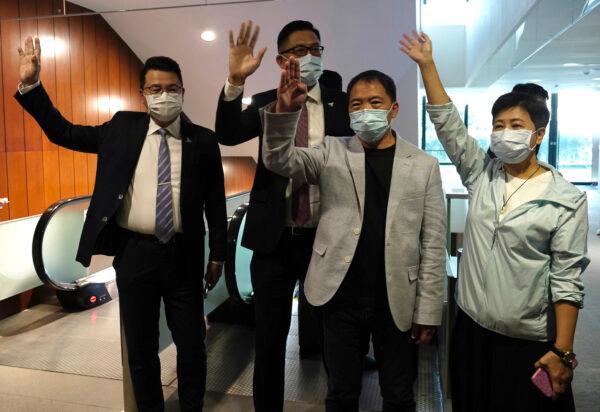
Wu Chi-wai, chairman of the local Democratic Party, who handed in his resignation, said the CCP and Hong Kong authorities were trying to take away the separation of powers in Hong Kong, since the ousting of the four bypassed the courts.
“We lost our check-and-balance power, and all the constitutional power in Hong Kong rests in the chief executive’s hands,” Wu said.
Claudia Mo, a pro-democracy lawmaker who also handed in her resignation, said: “We are quitting the legislature only at this juncture. We’re not quitting Hong Kong’s democracy fight.”
The mass departure will leave Hong Kong’s legislature with just 43 legislators, 41 of whom belong to the pro-Beijing bloc.
In a press conference on Nov. 11, Lam denied the prospect that the LegCo would become a rubber-stamp legislature.
‘A New Hope Will Emerge’
Despite the expulsion from LegCo, Kwok Ka-Ki remains hopeful that things will eventually turn around.“History will hold those in power to account, for as long as we hold our core values dear, a new hope will emerge,” he wrote on Twitter.
Dennis Kwok said, “in terms of legality and constitutionality, obviously, from our point of view, this is clearly in breach of the Basic Law and our rights to participate in public affairs, and a failure to observe due process.”
“I love HK, this is a firm conviction that I will not yield to any new challenges now and ahead,” Yeung added.
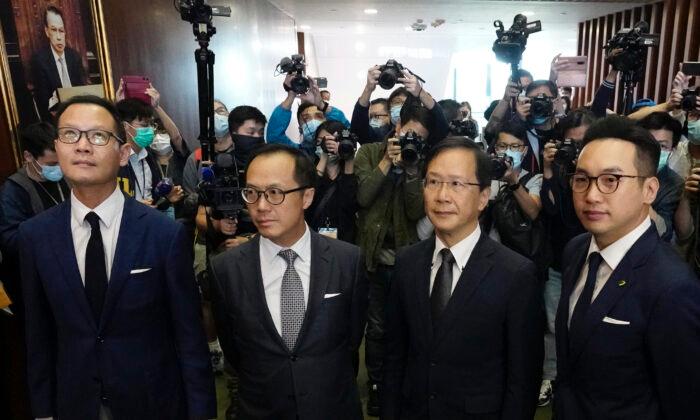

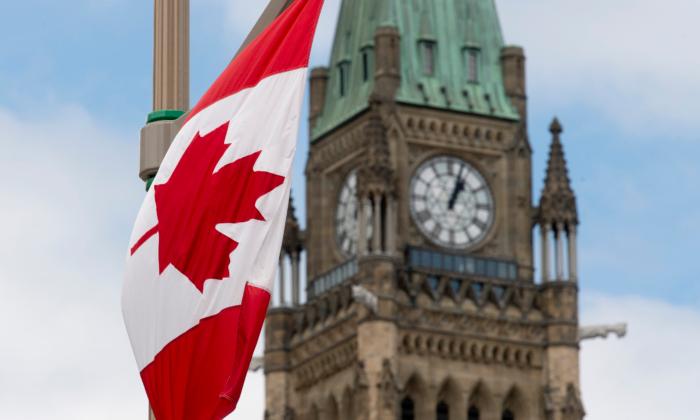
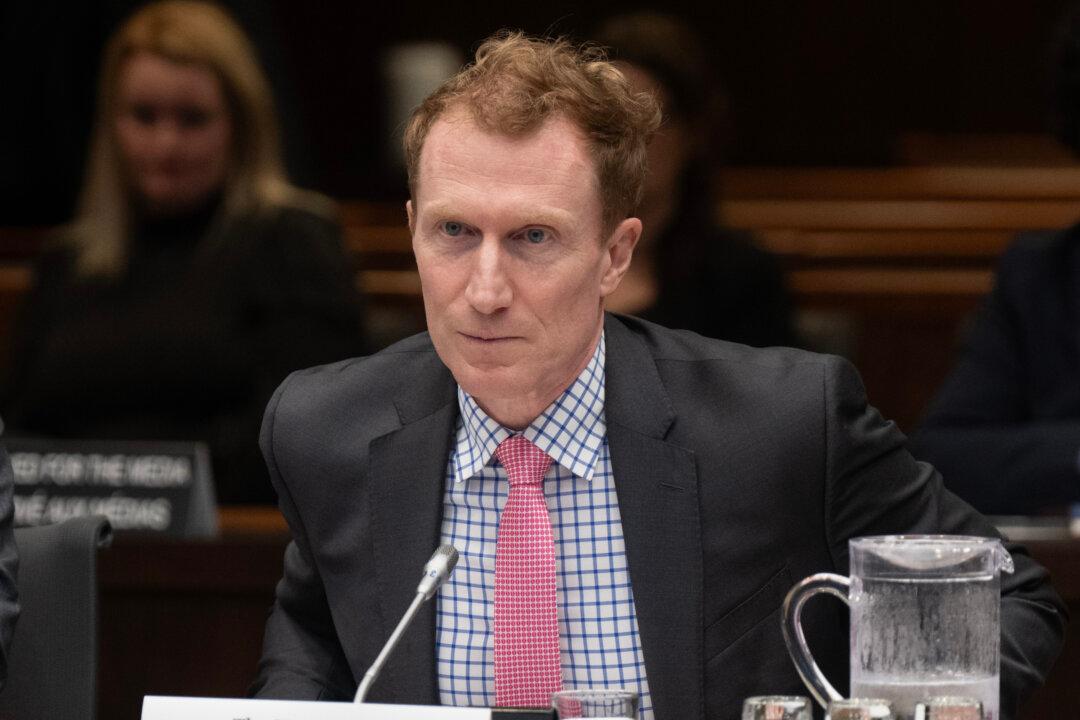

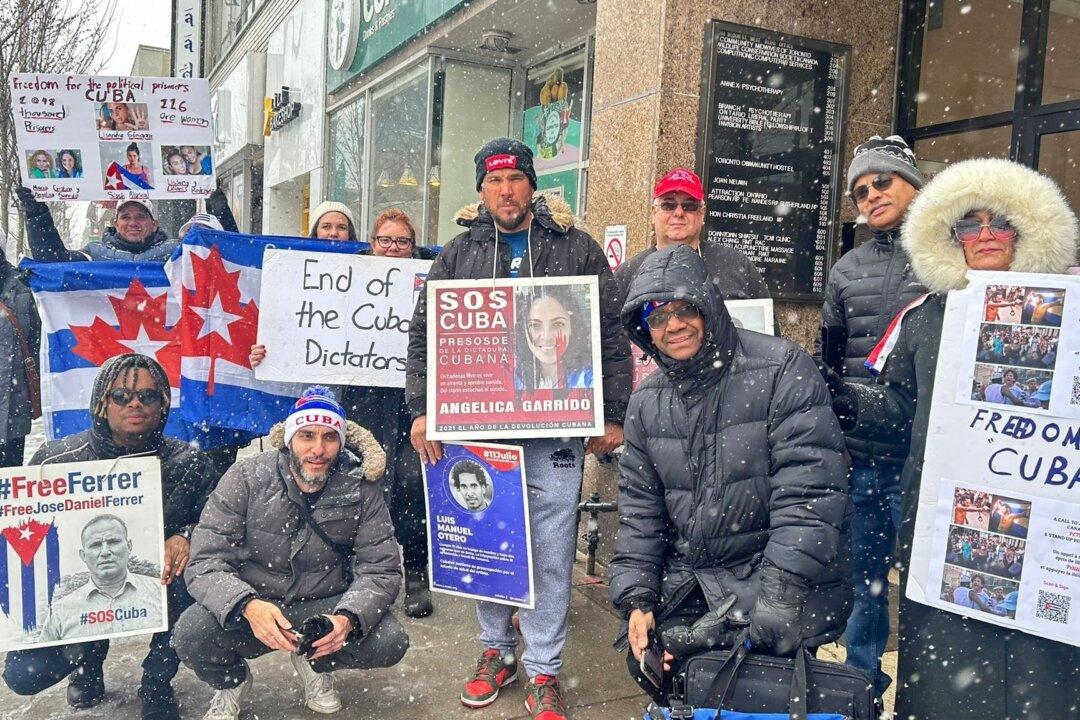
Friends Read Free